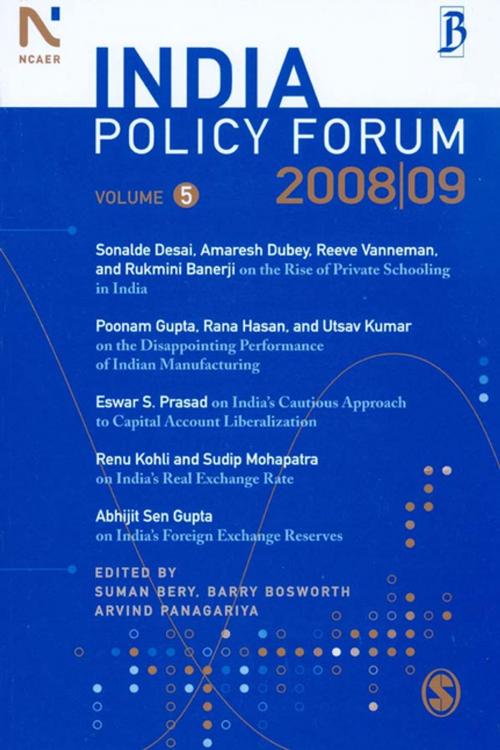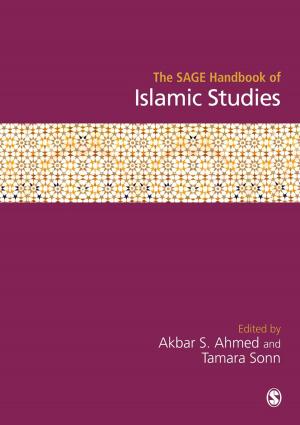India Policy Forum 2008-09
Nonfiction, Social & Cultural Studies, Political Science, Politics, Economic Policy, Business & Finance, Economics| Author: | ISBN: | 9789352802692 | |
| Publisher: | SAGE Publications | Publication: | September 10, 2009 |
| Imprint: | Sage Publications Pvt. Ltd | Language: | English |
| Author: | |
| ISBN: | 9789352802692 |
| Publisher: | SAGE Publications |
| Publication: | September 10, 2009 |
| Imprint: | Sage Publications Pvt. Ltd |
| Language: | English |
India Policy Forum 2008-09 (Volume 5) comprises papers and highlights of the discussions from the fifth India Policy Forum (IPF) conference, held on July 15-16, 2008, in New Delhi. The annual examines India's reforms and economic transition using policy-relevant empirical research. It generates theoretically rigorous and empirically informed research on important current and unfolding issues of Indian economic policy.
The first paper examines the growth of private schools in India and their influence on the quality of education being imparted. It is an extension of the recent issues of this journal that have evaluated the performance of India's education system. The second paper addresses the major question of why the growth of manufacturing output and employment in India has been disappointingly low. The final three papers share a common focus on India's external financial relations. The third paper analyzes the process of capital account liberalization and the integration of India's financial institutions into the global financial system. The fourth paper measures the evolution of prices in the nontradable and tradable sectors of the Indian economy and seeks explanations for the rise in the relative price of nontradables. The last paper addresses the issue of the adequacy of India's current foreign exchange reserves.
The volume would be useful to researchers and policy-makers in the fields of economics, policy studies, development studies, and political economy.
India Policy Forum 2008-09 (Volume 5) comprises papers and highlights of the discussions from the fifth India Policy Forum (IPF) conference, held on July 15-16, 2008, in New Delhi. The annual examines India's reforms and economic transition using policy-relevant empirical research. It generates theoretically rigorous and empirically informed research on important current and unfolding issues of Indian economic policy.
The first paper examines the growth of private schools in India and their influence on the quality of education being imparted. It is an extension of the recent issues of this journal that have evaluated the performance of India's education system. The second paper addresses the major question of why the growth of manufacturing output and employment in India has been disappointingly low. The final three papers share a common focus on India's external financial relations. The third paper analyzes the process of capital account liberalization and the integration of India's financial institutions into the global financial system. The fourth paper measures the evolution of prices in the nontradable and tradable sectors of the Indian economy and seeks explanations for the rise in the relative price of nontradables. The last paper addresses the issue of the adequacy of India's current foreign exchange reserves.
The volume would be useful to researchers and policy-makers in the fields of economics, policy studies, development studies, and political economy.















